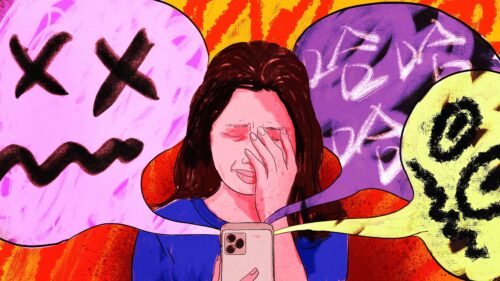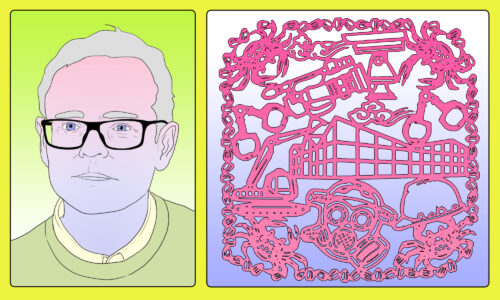Sinica extra: Q&A with Rachel Stern on the scholarly appeal of China’s legal system, the nation’s crackdown on lawyers and U.S. litigiousness
Rachel Stern, a law professor, author and guest on the October 20 Sinica podcast, joins Jeremy Goldkorn for a supplementary discussion about comparisons between the U.S. and Chinese legal systems, the phrase "rule of law" and the Chinese citizens who are filing lawsuits.

Jeremy: A cynic might joke that studying Chinese law and legal processes is in some ways like living in the Sahara Desert and studying oceanography! How did you get interested in Chinese law and what keeps you interested?
Rachel: I get that a lot at parties. People are like, “I didn’t know China had any law to study!” My primary interest is politics, though, so for me, law is a window into social and political conflict. Take my first book, for example. Although some of the book talks about China’s various environmental laws, the main point is that environmental litigation is a place to observe how different groups respond to mixed signals from the government. Today, I’m mostly struck by how little we know about how Chinese law and legal institutions work in practice. There are a huge number of interesting questions to ask and relatively few scholars doing this work.
Jeremy: Does the U.S. have too many lawyers? Does the mainland Chinese government have anything at all to teach the U.S. about using the law to regulate society without the problem of citizens and companies eager to litigate over every single inconvenience or unfortunate happening in their lives?
Rachel: Even though the U.S. is famous for having the highest per-capita population of lawyers in the world, I don’t see American litigiousness as a direct result of the number of lawyers. Rather, I’d say that litigation plays a central role in American political life because we have a style of governance that relies heavily on judges and courts to implement and adjust government policies as well as adjudicate disputes. In other parts of the world, where there isn’t as much mistrust of government, bureaucracies do more of the work that courts end up doing in America. Stuff like compensating victims of environmental pollution or assessing discrimination claims, for example. I also don’t think Americans sue at the drop of a hat. For example, there are plenty of injury victims who drop claims because they see litigation as expensive, divisive or remote. But could the United States learn from other countries — including China — about how to control court costs and provide other avenues of dispute resolution? Absolutely. I’d love to see more of that kind of comparative research and reflection.
Jeremy: In the podcast, we talk about how law in China is becoming an effective dispute-resolution mechanism, but that there’s not much hope that the law might provide a separation of powers that would put real limits on what the government can do. Do we need a different word to describe Chinese law? Does the distinction between “rule of law” and “rule by law” make sense to you?
Rachel: There is a lot of ambiguity about the terms “rule of law” and “rule by law” and, even if I think I know what they mean for myself, I find that people use those terms quite differently from each other in conversation. Because of this definitional confusion, I generally sidestep the term “rule of law” in my own writing. Instead, I try to talk more concretely about the stated goals of the Chinese legal system (such as fairness and efficiency) as well as ideas that are contested (such as judicial independence from the Chinese Communist Party). I do think that Xi Jinping and the leadership of the Chinese Communist Party are serious about court reform, and about developing an indigenous brand of “rule of law.” The trick is to unpack exactly what that entails, especially as it keeps changing.
Jeremy: How would you compare the rule of law in China to that in other developing countries?
Rachel: When it comes to legal institutions, the two classic developing-country problems are widespread bribery of judges, cops and prosecutors, and punishing backlogs of court cases. India, for example, is famous for cases that last decades. In comparison, China is a model of judicial efficiency. Courts are graded on their ability to clear their dockets and, although it sometimes happens, it’s unusual for a case to drag on for years. Favoritism and flat-out corruption are more serious problems, of course, and the leadership is well aware that they are important issues to address. As in other developing countries, one of the problems in China is that the salaries of judges and other legal personnel remain relatively low. It’s hard to stamp out bribery when judges don’t feel they make enough to support themselves and their families.
Jeremy: Have the crackdowns on activist lawyers over the last few years greatly affected the numbers of people in China seeking to use the law to moderate government behavior? Have these crackdowns affected the numbers of people interested in becoming lawyers in non-activist capacities?
Rachel: I haven’t seen evidence that the crackdown on activist lawyers has affected people’s willingness to use the legal system or to enter the legal profession. Actually, the official numbers suggest the opposite. Administrative lawsuits, which are cases in which people sue the state, rose 59 percent between 2014 and 2015. Likewise, 20 percent more people signed up for the judicial exam this September than the previous year. Plenty of people still see a career as a legal professional as a route to a solid, middle-class life, and also see courts as a plausible way to demand government accountability. For all the attention paid to the crackdown on activist lawyers in the international press, it was not covered widely in China and does not seem to have budged public opinion.
Jeremy: Are you seeing people or organizations in China taking to the courts to stop environmental pollution or destruction even when it does not affect them personally?
Rachel: Most of those court cases are still brought by people who have suffered directly from pollution. Revisions to the environmental protection law, which went into effect in 2015, allow environmental NGOs to bring lawsuits in the public interest, but we’ve only seen a small number of cases so far. However, the number of cases brought by pollution victims is shooting up and that’s also a significant story. Seventy-eight thousand civil environmental lawsuits concluded in 2015, compared with 12,000 as recently as 2010. This shows that environmental awareness is growing, and people are willing to go to court over pollution.






